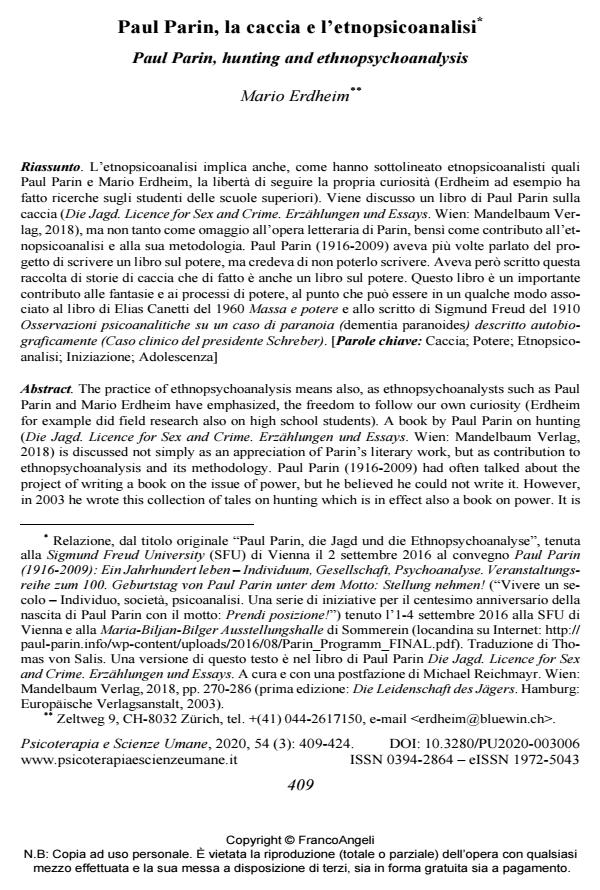Paul Parin, hunting and ethnopsychoanalysis
Journal title PSICOTERAPIA E SCIENZE UMANE
Author/s Mario Erdheim
Publishing Year 2020 Issue 2020/3
Language Italian Pages 16 P. 409-424 File size 87 KB
DOI 10.3280/PU2020-003006
DOI is like a bar code for intellectual property: to have more infomation
click here
Below, you can see the article first page
If you want to buy this article in PDF format, you can do it, following the instructions to buy download credits

FrancoAngeli is member of Publishers International Linking Association, Inc (PILA), a not-for-profit association which run the CrossRef service enabling links to and from online scholarly content.
The practice of ethnopsychoanalysis means also, as ethnopsychoanalysts such as Paul Parin and Mario Erdheim have emphasized, the freedom to follow our own curiosity (Erdheim for example did field research also on high school students). A book by Paul Parin on hunting (Die Jagd. Licence for Sex and Crime. Erzählungen und Essays. Wien: Mandelbaum Verlag, 2018) is discussed not simply as an appreciation of Parin’s literary work, but as contribution to ethnopsychoanalysis and its methodology. Paul Parin (1916-2009) had often talked about the project of writing a book on the issue of power, but he believed he could not write it. However, in 2003 he wrote this collection of tales on hunting which is in effect also a book on power. It is an important study on power fantasies and processes, to the point that it can be somehow associated to Elias Canetti’s 1960 book Crowds and Power and also to Sigmund Freud’s 1910 essay Psycho-analytic notes on an autobiographical account of a case of paranoia (dementia paranoides) (Case history of Schreber). A version of this paper was presented at a meeting for the 100th anniversary of Paul Parin’s birth at the Sigmund Freud University (SFU) of Vienna, September 1-4, 2016.
Keywords: Hunting; Power; Ethnopsychoanalysis; Initiation; Adolescence
Mario Erdheim, Paul Parin, la caccia e l’etnopsicoanalisi in "PSICOTERAPIA E SCIENZE UMANE" 3/2020, pp 409-424, DOI: 10.3280/PU2020-003006